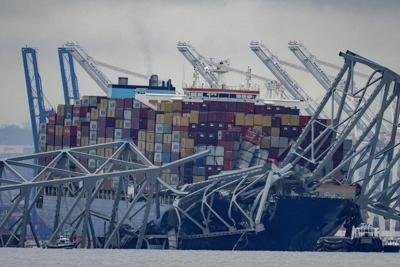Two significant bridge incidents have recently raised concerns about the vulnerabilities of the nation’s maritime infrastructure. After the collapse of the Francis Scott Key Bridge in Baltimore in March, another near-miss occurred in Charleston Harbor in South Carolina on June 5. Although no one was injured, the incident highlighted the potential risks posed by cyberthreats, which are often overlooked in maritime incidents. The frequency and severity of incidents involving critical infrastructure have increased, prompting worries about the effectiveness of defenses and investigative processes.
The complexity and interconnectivity of modern infrastructure have made the consequences of these incidents far-reaching and costly. Factors such as aging infrastructure, human error, and cyberactivity contribute to these incidents, emphasizing the need for thorough investigations and robust defenses. The urgency of addressing these threats was underscored by the Colonial Pipeline ransomware attack in 2021, which disrupted fuel supplies across the eastern United States. To safeguard critical infrastructure, agencies must be adequately resourced and equipped to conduct comprehensive investigations into the causes of maritime incidents, including potential cyberattacks.
Effective coordination, resource allocation, and advanced forensics tools are essential for investigating cyberthreats to maritime infrastructure. Proactive measures, such as investing in cybersecurity infrastructure, workforce development, and legislative action, are crucial for fortifying defenses against cyberattacks. Establishing stringent cybersecurity laws and regulations, along with minimum standards for critical infrastructure, is necessary to enhance cybersecurity in the maritime sector. The rise in maritime incidents serves as a stark reminder of the vulnerabilities in an interconnected world, highlighting the importance of empowering investigative agencies to address cyberthreats effectively.







